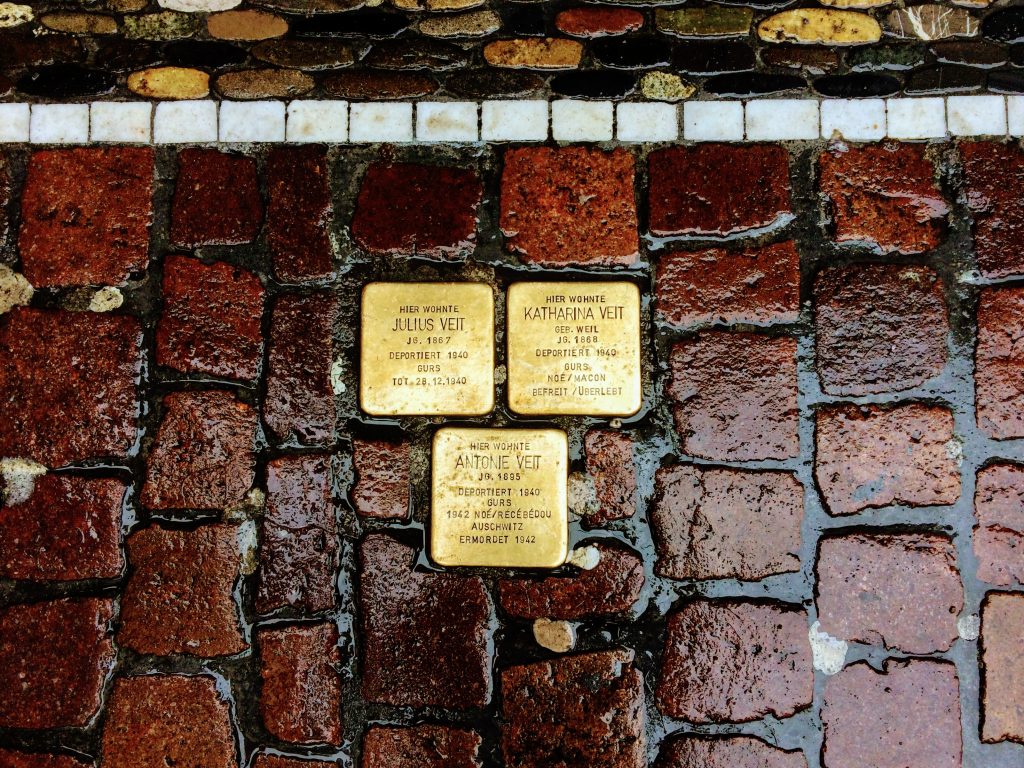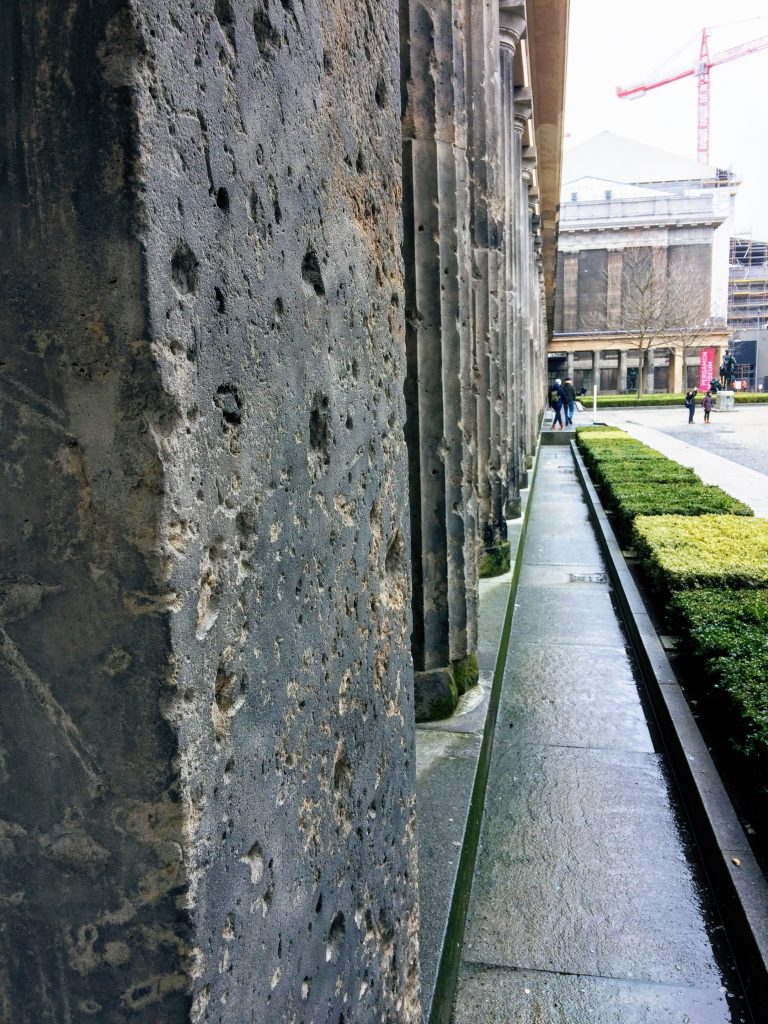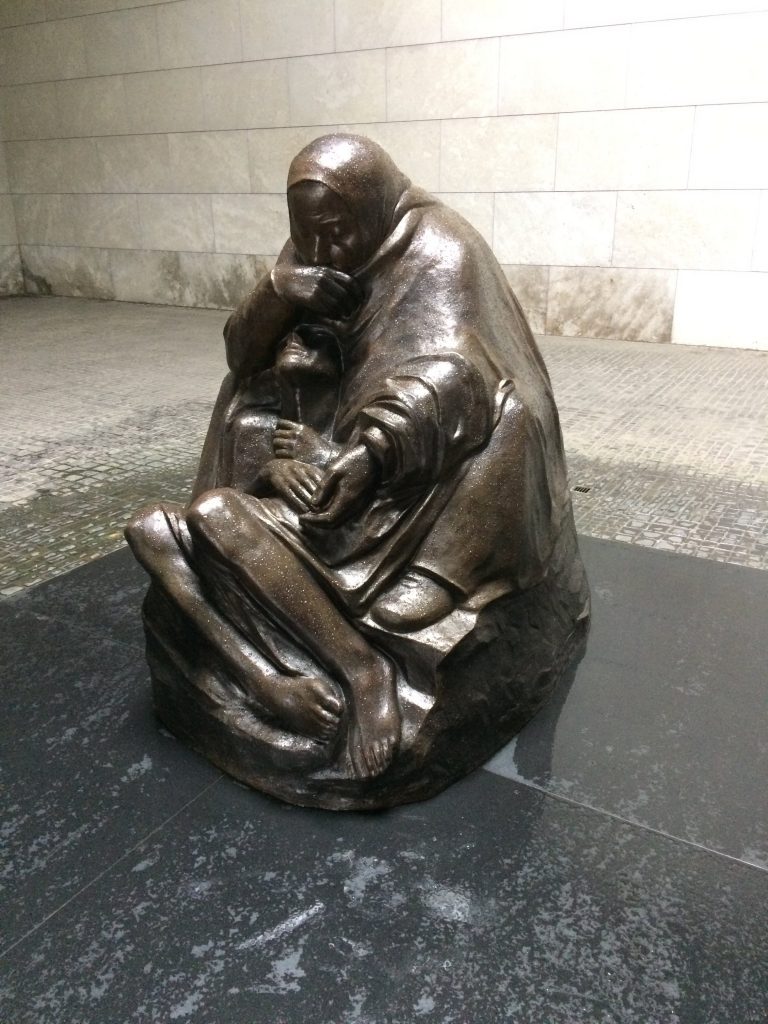Embedded into the streets outside of buildings and homes all cross Germany are Stolpersteine, or “stumbling blocks”. These small brass squares don’t literally trip people, but are there to cause a little “stumble” as you go about your day-to-day life; to jolt you a little along your way. The stones serve as miniature memorials and mark the houses where Jewish Holocaust victims once lived.

Life in Germany is haunted by the past; these Stolpersteine are just one way in which one is reminded of the Holocaust on a daily basis. There’s many memorials throughout the country, and even the cities themselves still bear the scars of the war- scorch marks and bullet holes mar historic buildings.

In America, the Second World War is definitely a source of horror, but we get to enjoy a sense of moral rectitude and triumph, and a removal from the events that Germans can’t. The war was fought on other continents, so we don’t spend our lives in cities that were once firebombed or occasionally hear about someone finding an un-exploded bomb in their garden while digging. When we do think about the atrocities committed, we get to remember ourselves as liberators rather than murderers, and when we remember the outcome, we remember victory rather than defeat. For Germans, the Second World War is a bitter memory full of shame and regret; a grievous sin for which they are still atoning.

Click through the two albums below to see two memorials in Berlin and learn more about them.
German culture has rejected the racism and intolerance put forth by the Nazis, but there’s still trouble today. Synagogues in Germany still have barricades and police guards outside of them to prevent Neo-Nazi terrorist attacks. For example, to enter the New Synagogue in Berlin, you have to go through metal detectors and allow your bags to be inspected. The very fact that this is necessary is a source of shame to Germans.
The specter of Nazism isn’t just noticeable in what one can see; it’s also noticeable in what’s omitted. Any form of patriotism is too similar to the fanatical nationalism that Hitler whipped up, so no one hangs German flags from their houses or has flag decals on cars or items. You’d be more likely to find the American flag printed on a shirt! Since Germany hosted the soccer World Cup in 2006, people feel comfortable sporting their nation’s colors in relation to soccer, but it’s still rare to see the flag being displayed year round except on government buildings.
Germany is still struggling to move past the Holocaust, both psychologically and physically. The people and the land still bear the scars that the war and the following division created. The future is bright, though. Germany is reunited and has become a prominent and influential nation. The heightened consciousness of the Holocaust is a burden, but also a guarantee that fascism will never again find fertile ground in Germany.





